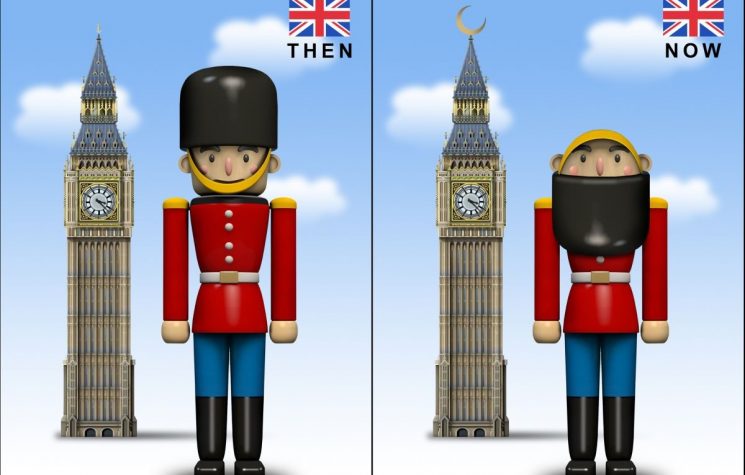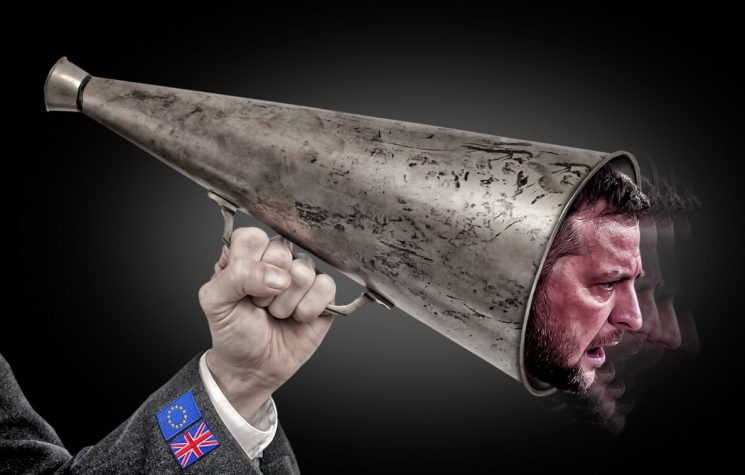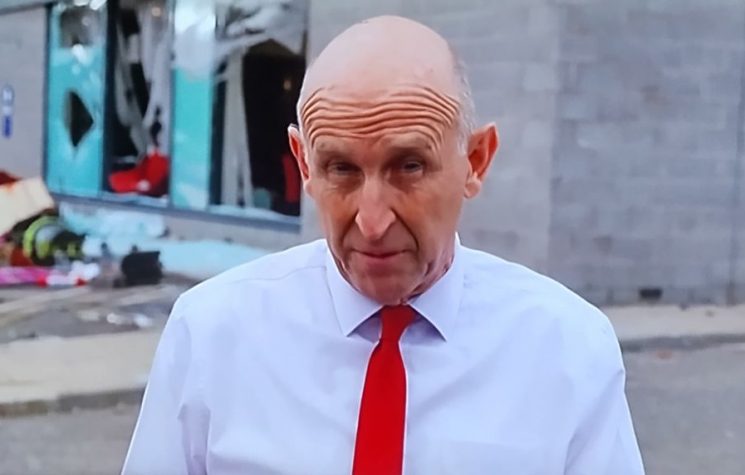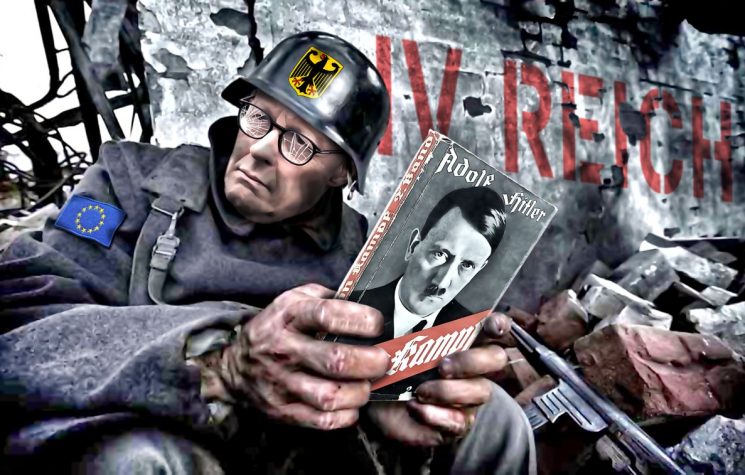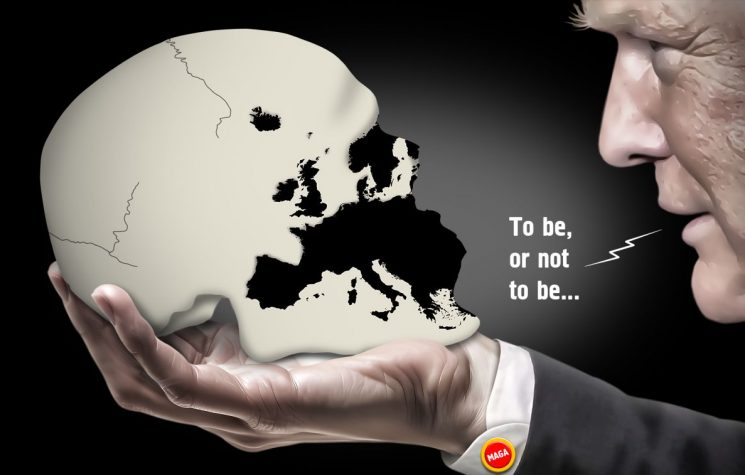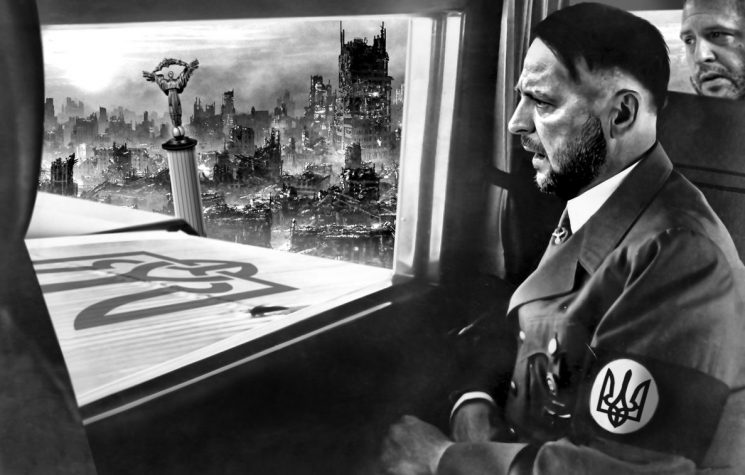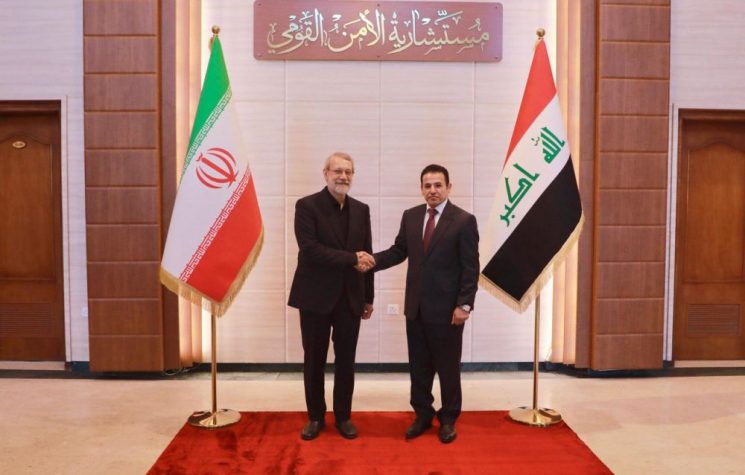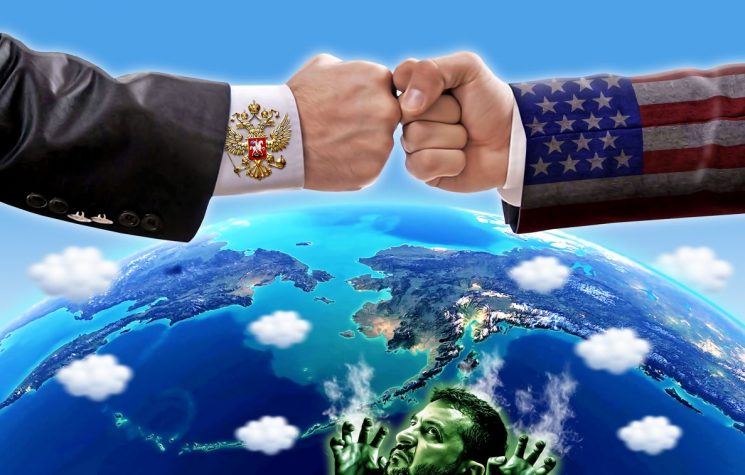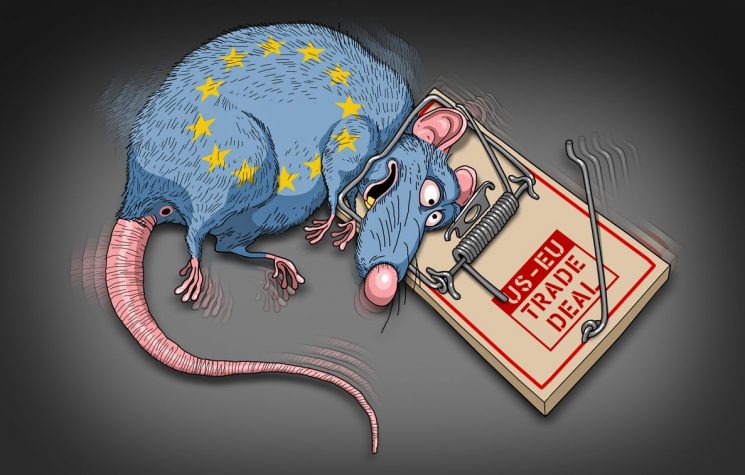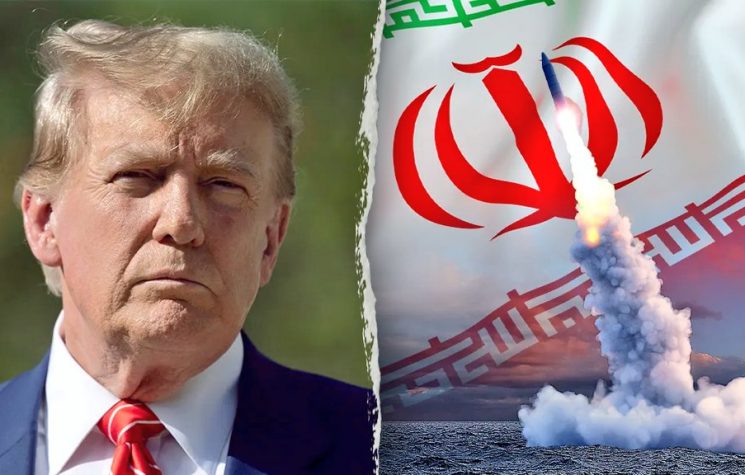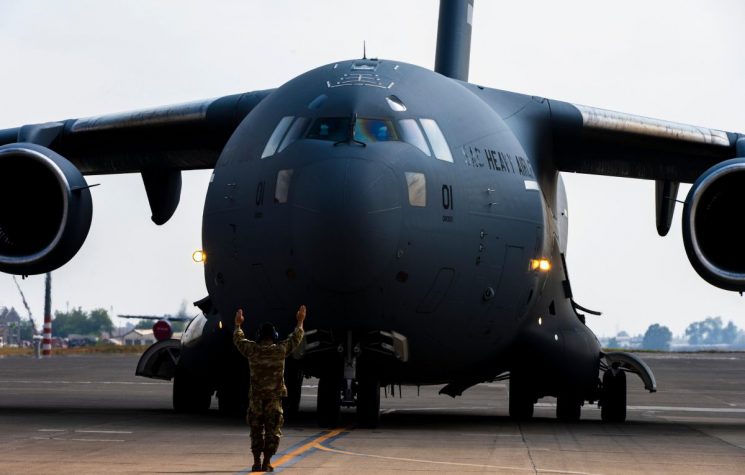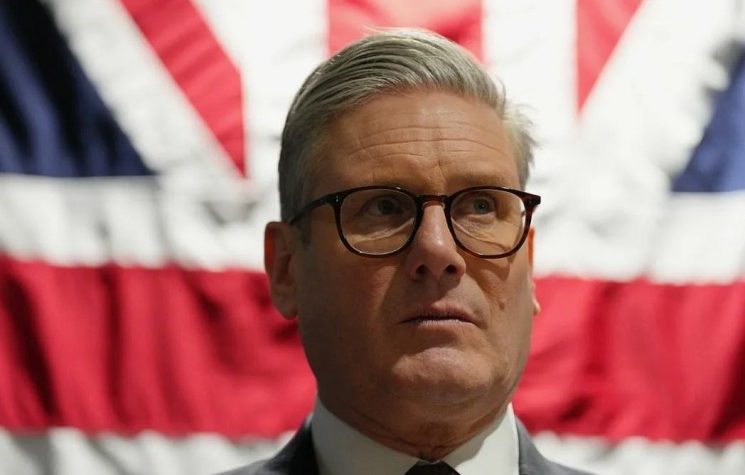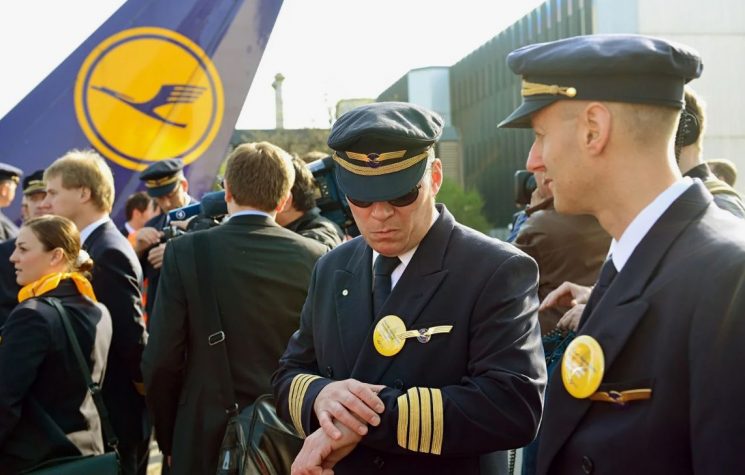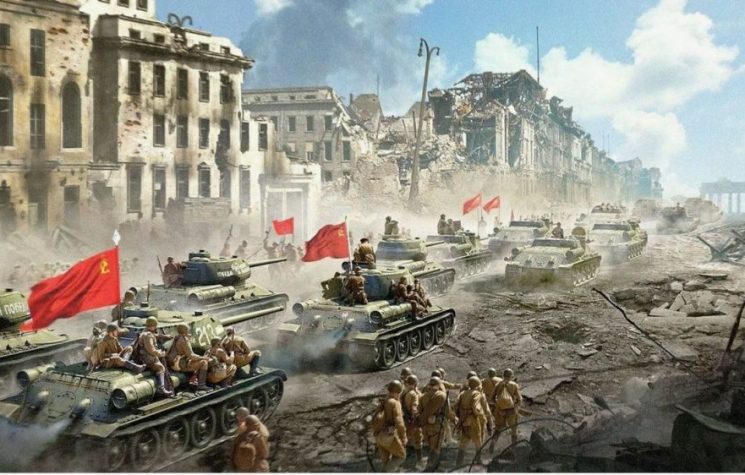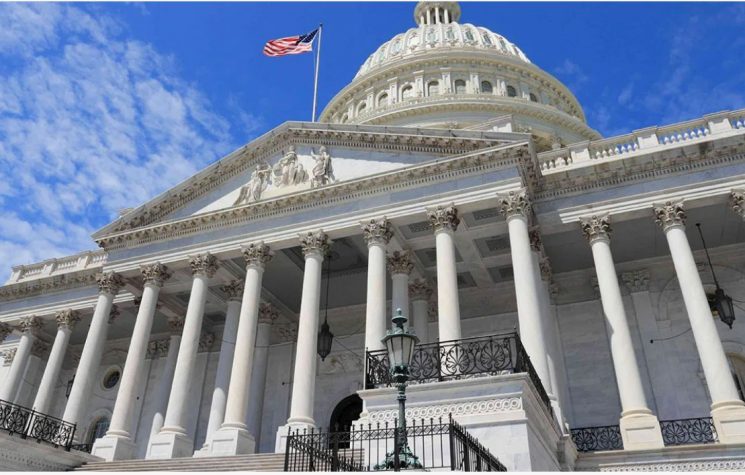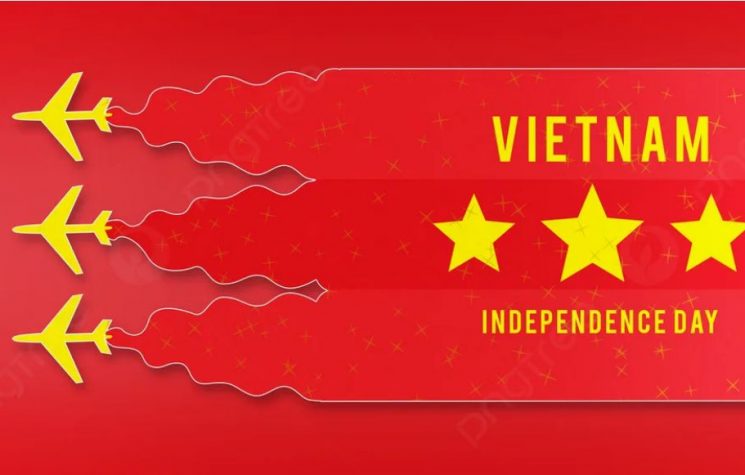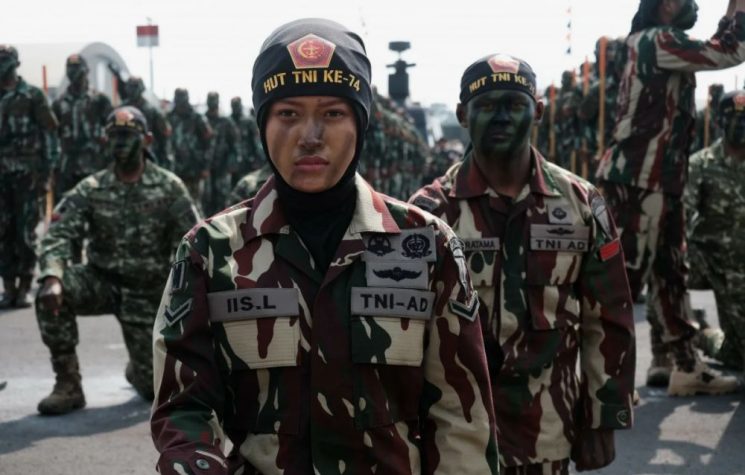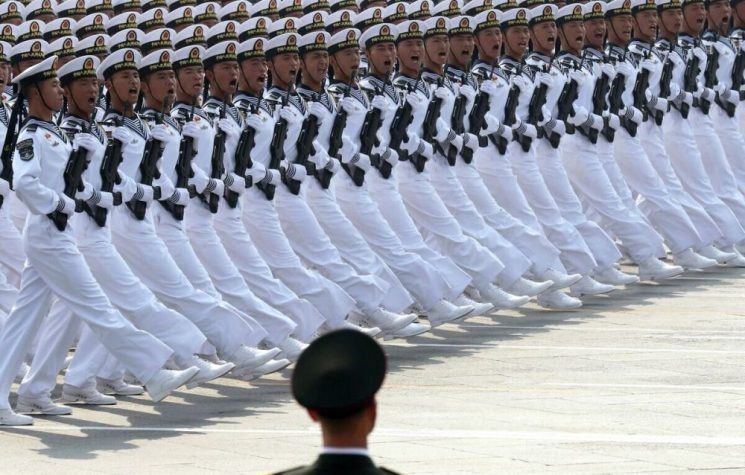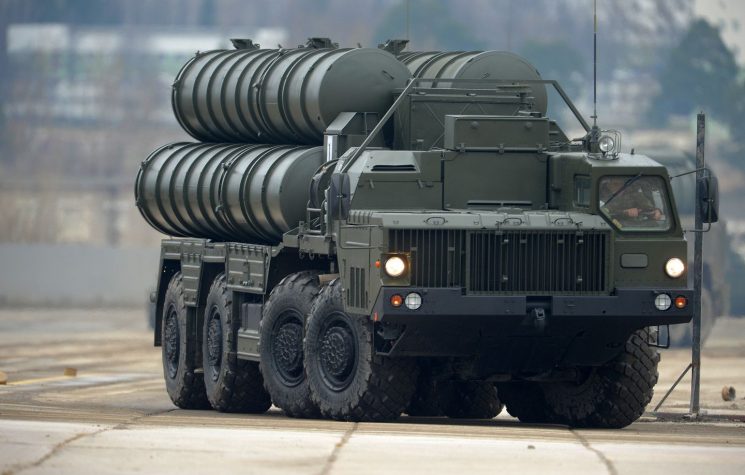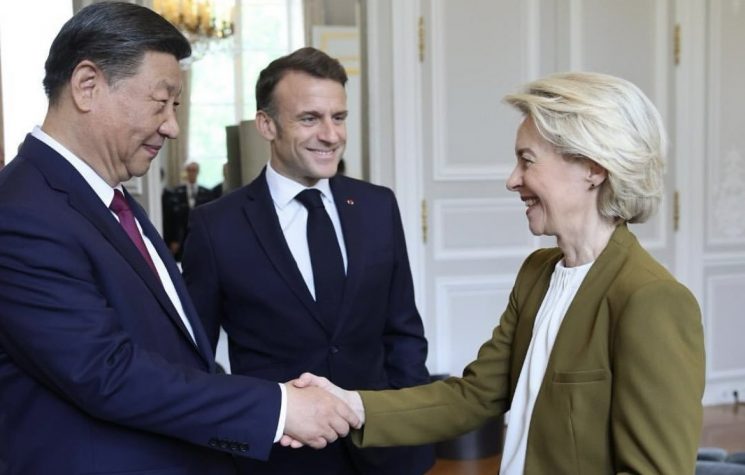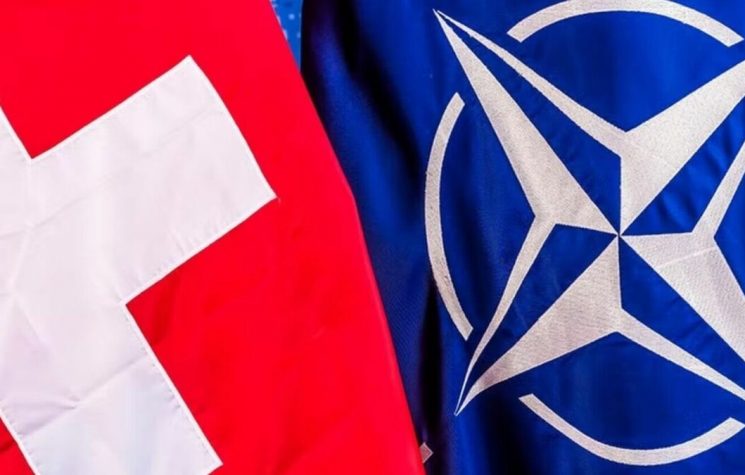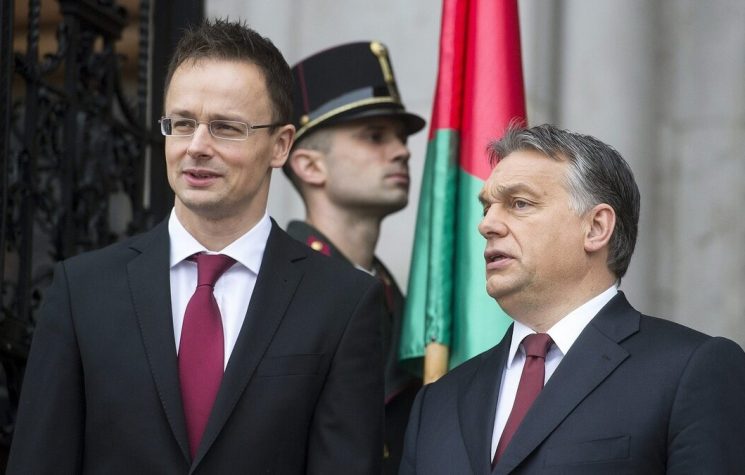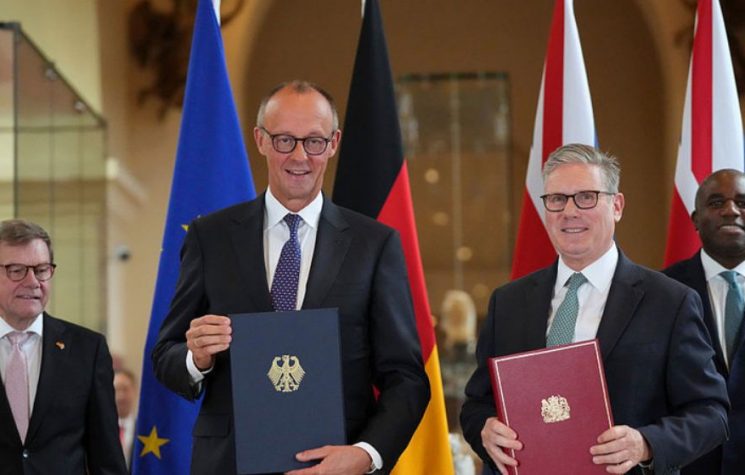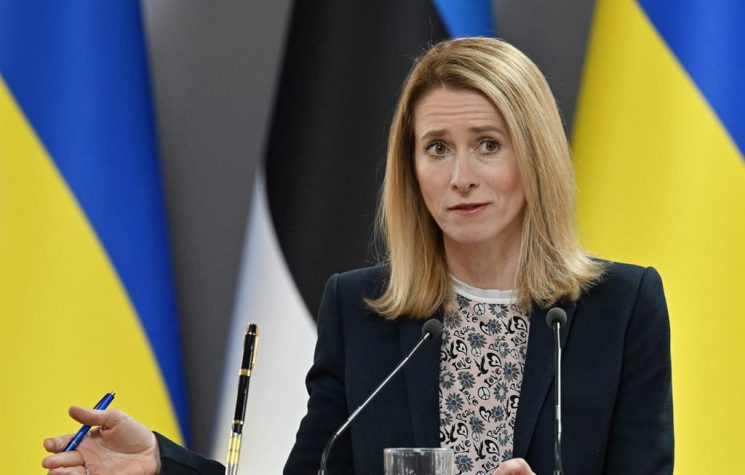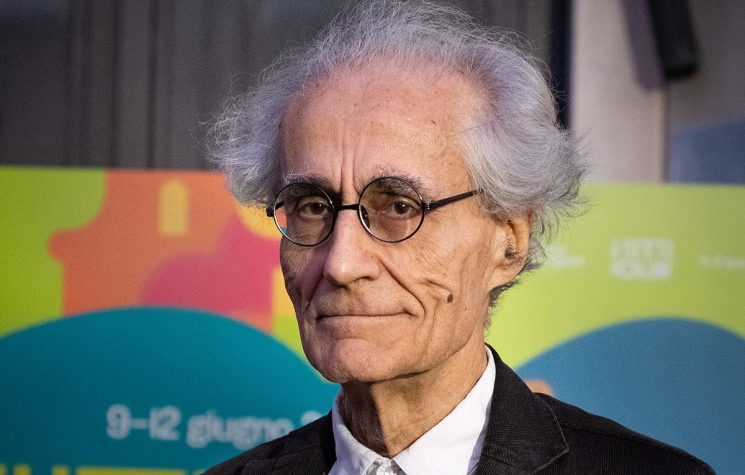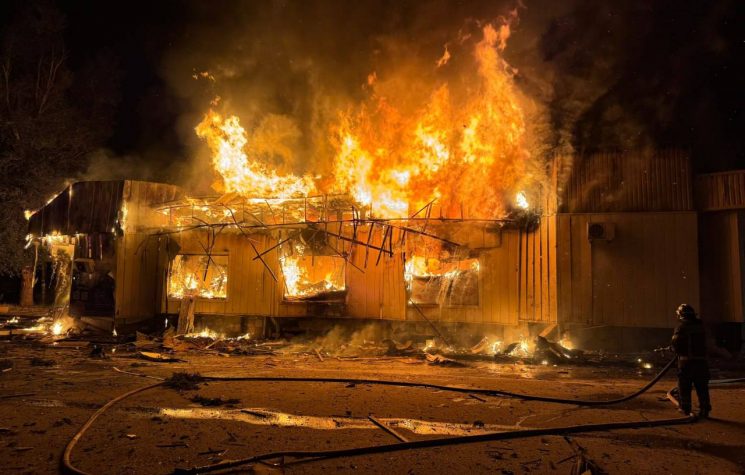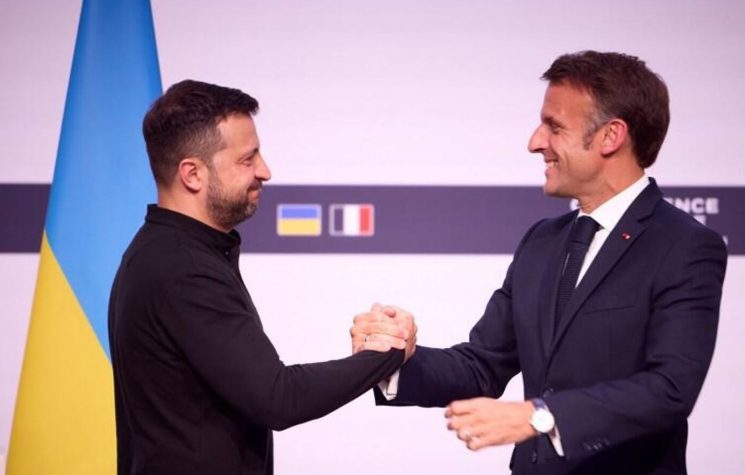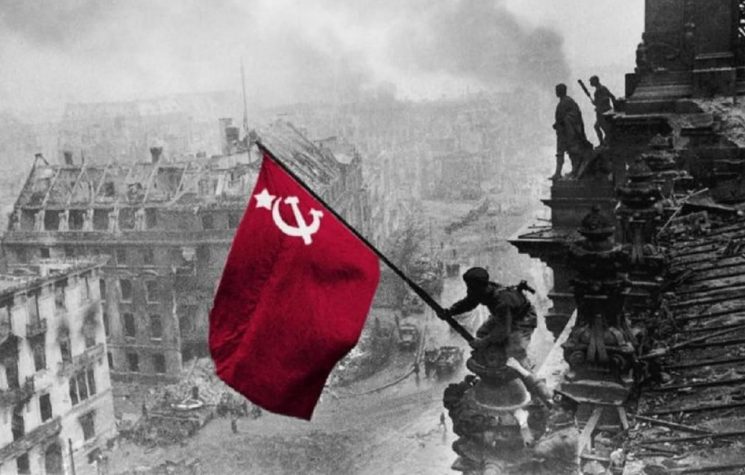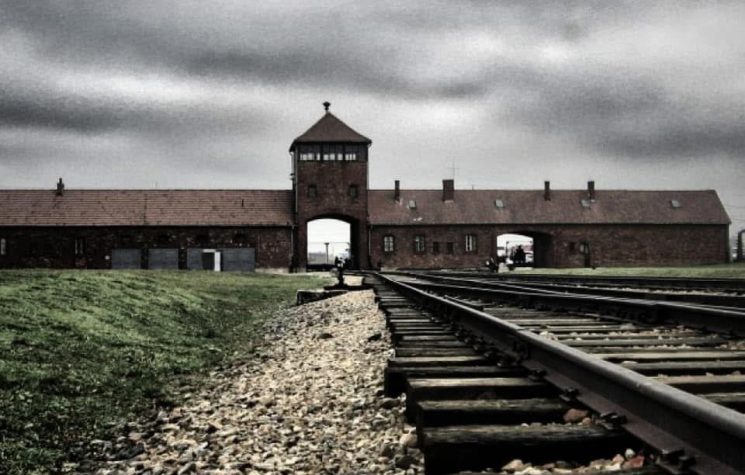The rearmament already underway in the European powers is the clearest symptom of preparations for a major war.
Join us on Telegram![]() , Twitter
, Twitter![]() , and VK
, and VK![]() .
.
Contact us: info@strategic-culture.su
“Norms are eroding and old certainties are being challenged – we must act accordingly”
This is the tagline accompanying the article “Europe must arm itself in an unstable world,” published by Emmanuel Macron and Friedrich Merz in the Financial Times last week. The French and German leaders claim that “the main source of instability for Europe come from Russia,” particularly due to its defensive war against NATO in Ukraine.
“Vladimir Putin’s objective is to undermine European security to Moscow’s advantage. There is a methodical attempt on the part of Russia to exercise coercitive tutelage over its neighbours, to seek to destabilise European countries and to challenge the global order. We cannot accept it, because our aim is to protect and preserve peace on our continent,” Macron and Merz write. And shortly after, they make a prediction: “what is at stake will determine European stability for the decades to come.”
The rhetoric of imperialist powers about Russia has only been matched during the preparatory phases of major wars. Just a few days ago, Kaja Kallas stated that Russia has “a long-term plan for a long-term aggression” and that “Europe is under attack and our continent sits in a world becoming more dangerous.” She echoed warnings from Mark Rutte who, days earlier, had declared to Europeans: “you have to get your Russian language course out, or go to New Zealand,” when he predicted Russia might attack the continent in the coming years. The U.S. ambassador to NATO, Mathew Whitaker, also warned: “the threats facing NATO are growing and our adversaries are certainly not waiting for us to rearm or be ready for them to make the first move.”
These are only the latest among dozens of statements by high representatives of European and American imperialism signaling the approach of a war against Russia. At the NATO Summit in Madrid in June 2022, Russia was reclassified from “partner country” (2010) to “the most significant and direct threat to Allies’ security and to peace and stability in the Euro-Atlantic area.” Josep Borrell has repeatedly said that Russia is “an existential threat” to Europe.
When Hitler was preparing for the future invasion of the Soviet Union, his January 30, 1939 speech in the Reichstag went in a similar direction to that of today’s European leaders: “if the international Jewish financiers in and outside Europe should succeed in plunging the nations once more into a world war, then the result will not be the Bolshevization of the earth, and thus the victory of Jewry, but the annihilation of the Jewish race in Europe.” Hitler said this seven months before invading Poland. When European imperialists are about to unleash war, they will not hesitate to speak in the same terms as Hitler.
The rearmament already underway in the European powers is the clearest symptom of preparations for a major war. Germany steadily increased its military spending between 2014 and 2021, and Russia’s operation in Ukraine served as a major pretext (as it did for all European imperialist nations) to drastically reorganize its war structure, amend its constitution, and approve its largest military expenditure since Adolf Hitler.
“In attacking Ukraine, Putin doesn’t just want to eradicate a country from the world map, he is destroying the European security structure,” said Olaf Scholz, Merz’s predecessor, in the same building used by Hitler, in February 2022. “Russian invasion of Ukraine marks a turning point. It threatens our entire post-war order,” he added. In June of that year, Macron declared that France must “enter a war economy” to “organize itself for the long term,” following a gradual increase in military spending since 2019. Starting in 2023, the country began implementing a new defense plan that would double military spending by 2030. In a March 5 address this year, the French president stated that “we are entering a new era” and accused Russia of turning the conflict in Ukraine into “a global conflict” by allying with North Korea and Iran and helping “those countries to further rearm.”
It has been clear for a long time that this is not about defending Ukraine from a Russian invasion. NATO’s eastward expansion and the overthrow of Ukraine’s previous government and the rise of a fascist regime promoted by European and American imperialism—the true causes of the war in Donbass—make it evident that these regimes never had defensive, but aggressive goals. The words and actions of Western leaders show that their goal is not to deal with a localized conflict, but to wage a broader war to restore, secure, and expand their dominance over Europe and the entire globe.
From that point on, Germany would begin investing at least 2% of its GDP in the armed forces. This, as later confirmed, was of vital interest to the major German capitalists, responsible for Europe’s historically most industrialized economy but long subordinated to the order established by the Americans (“to keep the Germans down,” as the founding mantra of NATO put it).
Apparently, at least for now, Europeans as a whole are abandoning that infamous mantra by promoting the resurgence of German militarism. And not just them: the enforcer of that rule—the United States—must now deal with a government that demands Europeans, including the Germans, to remilitarize. This also reveals the level of political crisis across the Atlantic: traditional establishment sectors are in a panic over the growing possibility of losing imperialist control over Europe, a vassal since the end of World War II. Their European vassals, who have governed until now, did try to maintain the old arrangement, but the crisis of the American regime has echoed within the European one—created in the image and likeness of the American—and now, to save their profits and try to recover from the disaster experienced since 2008, the major German, French, and British capitalists realize they must restore their war industry to reclaim the old might of bygone times.
American neocons like Victoria Nuland thought they would have exclusive advantage over Ukraine after overthrowing President Yanukovych. But the country is far from the U.S., and although American imperialism dominated Europe for 80 years, Ukraine is still between Russia and Europe—making it impossible for Europeans not to participate, even as minority partners, in the plunder of Ukraine. As the conflict evolved, the U.S. itself had to expand European participation in the war. The biggest blow to American hegemony was the election of Donald Trump to a second term and the reduced U.S. role in the war. As in the imperialist system there is no vacuum left unfilled, Ukraine is now becoming a vast testing ground for the European war industry. More than that: it is becoming a market to justify the large-scale production—unseen in 80 years—of the German, French, and British military-industrial complex.
That military-industrial complex managed to secure the increase of “defense” spending by Western European countries to 5% of GDP in all NATO countries at the June summit.
In their article for the FT, Macron and Merz recall that the EU and the UK allocated €130 billion to Ukraine and will increase support for Kyiv’s armed forces, invest in Ukraine’s defense industry, and “ensure that Ukraine’s future military is large enough and equipped to deter any new invasion.”
But anyone who thinks the end goal is the war in Ukraine itself is mistaken.
“But shouldering our responsibilities goes beyond Ukraine,” the two leaders stress. “We will live for the foreseeable future in a deeply destabilised environment, and in a world in which our allies will have other dilemmas and priorities. Beyond Russia, we will still have many challenges to face, from terrorism to the protection of our territories, citizens and interests across the globe. We will have to rise to these challenges. Not because someone asks us to, but because we are clear-eyed and owe it to our citizens to do so.”
What terrorism threatens Europe? On the one hand, it is that which comes from outside. Islamic terrorism, caused precisely by the pillage maintained by the U.S., France, Germany, and the UK in Africa, the Middle East, and Southeast Asia for centuries. Caused by the wars instigated by these powers—as well as the genocide they promote through Israel, their forward post in the region, against the Palestinians. On this, European democrats, liberals, and progressives align with the far right of Rassemblement National or the AfD. And although Macron, Merz and their peers are tightening laws and strengthening police against the far right, this will only serve to hand over the state machinery, well-oiled, so that the far right can use it against the people. The repression of pro-Palestine and anti-war protesters is not a contradiction, but the materialization of the European bourgeoisie’s ideas. On the other hand, the terrorist threat—real or imaginary—that was once external, becomes internal, especially as regimes, to fund reindustrialization through rearmament, will have to cut social welfare spending—even more than in recent years—and face active popular opposition.
Cuts in social areas do not automatically turn into military funding. They cannot be large enough, or countries would simply stop functioning. They must be a guarantee that regimes will pay the banks the loans taken to fund the war machine. After all, the great beneficiaries of the resurgence of European imperialism are the arms manufacturers and, above all, the bankers—nothing more symbolic than Stoltenberg becoming Norway’s finance minister after leaving NATO leadership.
Weren’t it precisely the industrialists and bankers who brought Hitler and Mussolini to power a century ago?
And why were Hitler and Mussolini chosen to restore the German and Italian empires? Because their social base—especially the petty bourgeoisie, but also growing lumpen and even working-class sectors—was ruined and outraged by the effects of a crisis-ridden imperialist system. History is repeating itself now. Macron, Merz, and Starmer cannot fulfill the European bourgeoisie’s needs, because they lack mass support. They do represent, as Hitler and Mussolini ultimately did, the great international banks and industrialists. But they lack the popular base necessary to enforce a dictatorship that grants full powers of imperialist expansion.
What they are doing, with all their reactionary policies of rearmament and tightening laws, is paving the way for their current opponents to take over and complete the task. It is no coincidence that Rassemblement National and AfD are quickly integrating into the so-called democratic regime and voting together with their countries’ governments on key decisions.
Earlier this year, Merz risked losing the chancellorship (rejected by masses in the streets) by spearheading an anti-immigration bill, narrowly defeated in the Bundestag. This was the first clear sign of the German traditional parties’ tendency to surrender to the AfD’s political program. A similar alignment had already occurred in December 2023 in France, when an anti-immigration law was passed with Macronist and RN votes. “This is an ideological victory for us,” said Marine Le Pen at the time.
The tightening of laws, the strengthening of police power, and the gradual transfer of power to the far right are the guarantees the European bourgeoisies need to fund rearmament with money squeezed from workers without real opposition. Once rearmament is secured, we will see the true meaning of the “protection of our territories” proclaimed by Macron and Merz: the expansion of those territories, in pursuit of raw materials for full reindustrialization, markets for new products, and use of all the materiel created by the arms industry. As Germany, France, and the UK are not Austria or Belgium, but still retain some global presence, they cannot settle for limited expansion—beyond national borders, they must cross continental limits (“our interests across the globe”, as they wrote). Nationalism in imperialist countries means capitalist expansion (after all, every capitalist state must expand its business), but as imperialist countries, they have power to dominate others. The nostalgia and symbolism of Rassemblement National and AfD, nostalgic for French and German militarism, will soon turn into annihilation of enemy nations for the domination of their respective bourgeoisies—including mutual annihilation.
The United States the declining superpower under challenge; China, the rising challenger; and Russia, the power already at war, bordering Europe and holding the world’s largest natural resource reserves, will obviously not stand idle. On the contrary: as is well known, they are already moving to fight in this great world war.













